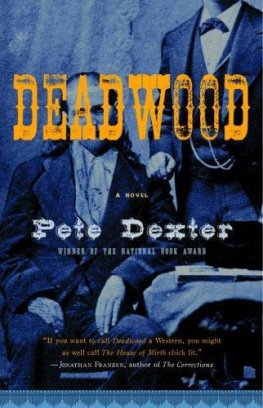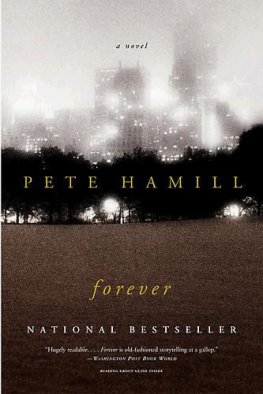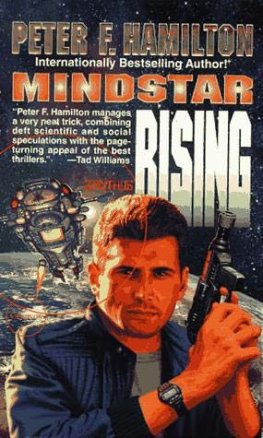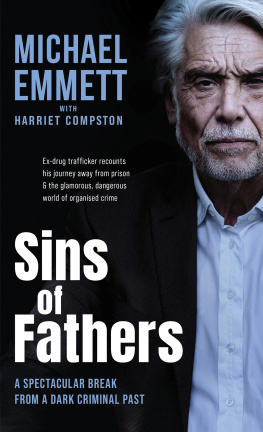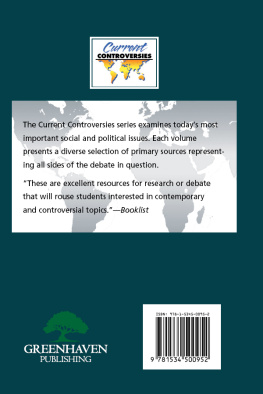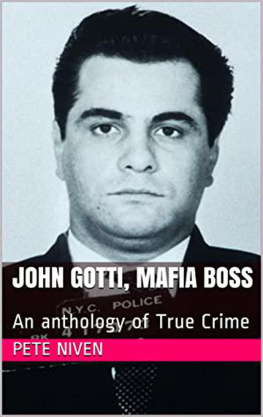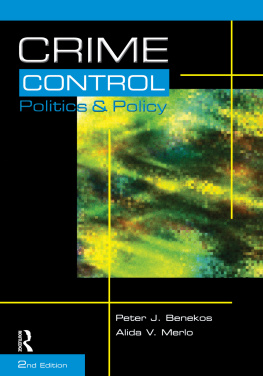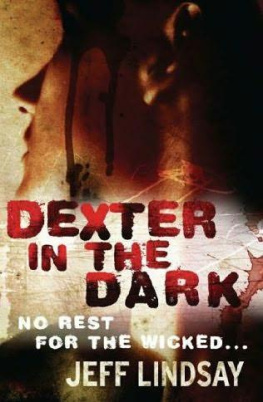Pete Dexter - Brotherly Love
Here you can read online Pete Dexter - Brotherly Love full text of the book (entire story) in english for free. Download pdf and epub, get meaning, cover and reviews about this ebook. year: 1992, publisher: Penguin (Non-Classics), genre: Detective and thriller. Description of the work, (preface) as well as reviews are available. Best literature library LitArk.com created for fans of good reading and offers a wide selection of genres:
Romance novel
Science fiction
Adventure
Detective
Science
History
Home and family
Prose
Art
Politics
Computer
Non-fiction
Religion
Business
Children
Humor
Choose a favorite category and find really read worthwhile books. Enjoy immersion in the world of imagination, feel the emotions of the characters or learn something new for yourself, make an fascinating discovery.

- Book:Brotherly Love
- Author:
- Publisher:Penguin (Non-Classics)
- Genre:
- Year:1992
- Rating:5 / 5
- Favourites:Add to favourites
- Your mark:
- 100
- 1
- 2
- 3
- 4
- 5
Brotherly Love: summary, description and annotation
We offer to read an annotation, description, summary or preface (depends on what the author of the book "Brotherly Love" wrote himself). If you haven't found the necessary information about the book — write in the comments, we will try to find it.
Pete Dexter: author's other books
Who wrote Brotherly Love? Find out the surname, the name of the author of the book and a list of all author's works by series.
Brotherly Love — read online for free the complete book (whole text) full work
Below is the text of the book, divided by pages. System saving the place of the last page read, allows you to conveniently read the book "Brotherly Love" online for free, without having to search again every time where you left off. Put a bookmark, and you can go to the page where you finished reading at any time.
Font size:
Interval:
Bookmark:
Brotherly Love
Pete Dexter
1991
For
Dianand Casey
UNI0N BROTHERS "HIT"100 MILES APART
BY WALLACET. BROOKS
STAFF Writer Three men, including SoutheasternPennsylvania Trade Union Council President Michael Flood and hisbrother, Peter, were found shot to death yesterday in what policesources have described as a "mob hit". Michael Flood, 32, and Leonard Crawley, 29,of Upper Darby, were discovered in the basement of a SouthPhiladelphia row house belonging to William OConnor, a retiredmember of the Roofers Union. Both men had been shot at close rangewith a shotgun. Earlier in the day, Peter Flood, 33, wasfound 100 miles away, in the back yard of his vacation home in CapeMay, N.J. He was listed as an officer of the Trade Union Council. The killings, according to police sources,signal a new chapter in Philadelphias crime wars, although theexact nature of the disputebelieved to concern control oflucrative union pension fundsis not clear at this time. Police have no suspects in the killing.According to police, OConnor, 77, suffers from Alzheimersdisease and has no memory of the shootings. He was questioned andreleased. "Its probably the reason they didnt[shoot] him too," said the police source. Michael Floods fatherPhilliplikehis son, president of the Trade Union Council, was killed 16 yearsago when a bomb rigged to his front door went off as he entered hisSouth Philadelphia home. No arrests were ever made in the killing.
PART ONE
1961
P eter Flood is eight yearsold, dressed in tennis shoes and a jacket that is too light againstthe cold and the wind. He dresses himself now; his mother is alwaystired.
A thin crust of snow lies across the yard, and hissisters fresh footprints lead from the front steps to the spotwhere she is standing, studying her mitten. Here and there the grasshas broken through, and he notices the patches of damp, bentbladestired, he thinks, from fighting through to the air. And heunderstands that, not wanting to be covered.
His sister moves, pulling his attention. She squatson chubby legs, rocking a moment for balance, and then slowly bringsthe snow to her face, her mouth opening a long time before the mittenarrives.
She pulls her hand away, staring at it. Snow sticksto the mitten and it drools down her chin. She looks up at him, herlips are wet and red, and she smiles. He sees dirt in her tiny frontteeth, and in a moment it is on her chin too, and then it drips ontothe front of her parka.
"Col," she says.
She watches him until he returns her smile, waits forit like a signal, and then, when he has given that to her, she closesthe mitten around a stone and brings that to her mouth too.
There is a park across the street; he is not allowedto go there without his father. He has watched other children playingalone in the parkthere are some there nowbut he understands,without being told, that his life is not like theirs, that he issomeone who has to stay in the yard.
He notices a man now, sitting on his heels, boxingwith a boy who can barely walk.
His sister stands up, rocking as she achievesbalance, and then takes a few steps away from him, in the directionof the street. She looks over her shoulder, teasing him, knowing hewill chase her now and catch her before she is out of the yard, andcarry her back to the steps.
Her head turns and she begins to run.
He crosses the yard in a few strides, his tennisshoes breaking holes in the snow. She shrieks as she hears him behindher, and ducks her head into her shoulders, waiting for the feel ofhis hand on her hood.
And then he touches it, careful not to take any ofthe hair underneath, and stops her. He puts his arm around her waistand lifts her off the ground, and feels the sudden change in her ashe carries her back to the steps.
She screams at him, "No!"
And he feels the heels of her rubber boots kickingagainst his legs, and understands that in this moment she would killhim if she could.
And then a moment later, back on her feet in thesnow, she smiles at him again and tries to say his name.
"Peener."
He sees the dog mess thenthats what his mothercalls it, dog mess, but he knows the real wordlying in a smokingpile as big as the animals head on the other side of the driveway.There is no snow on the dog mess, and it glistens in the sun.
Peter feels a familiar tightening in his legs andlooks across the street into the park again, listening for the soundof tags on a collar. He is afraid of dogs, especially this dog, buthe keeps it hidden. Somehow he is expected not to be afraid of dogs,just as he is expected to stay in the yard.
There is nothing as clear to him as what he isexpected to be.
The dog itself is white and has red eyes, crustedblack in the corners, and when it looks at Peter, everything insidethe animal is in those eyes, all of it held back by a single thread,something he has been taught. And the boy can feel the dog strainingagainst the thread, and knows that nothing the animal has been taughtwill change what it is.
The man who owns the dog lives in the house nextdoor. The place smells of garlic, even from the sidewalk, and thereis always polka music coming from inside. Peter sees the man poundingthe animals chest sometimes, and pulling its ears and throwingballs across the street into the park for it to retrieve. Sometimeshe invites Peter to touch the dog himself"Cmon, Paulie, hedont bite nobody but crooks. Hes trained .... "
The man calls him Paulie, sometimes Phil. Heremembers his fathers name, though.
Mr.Flood.
And Peter will walk across the driveway and touch theanimals head, his fingers in the matted coat, while everythinginside the dog is in his eyes, held back by the thread, something helearned from this man who cannot remember his name.
"See? He dont bite, he likes you .... "
Peter looks up the street now, looks for the manscar. The sound of it will draw the dog from the alleys of theneighborhood, from the hidden places behind the house and the yardwhere Peter lives. It is a red car with black tiresnot whitewalls,he gets his tires from the police garageand a top that comes downin the summer. An antenna is fastened to the trunk.
He looks for the car, but it isnt there.
His sister falls suddenly, for no reason he can see,and lands on her bottom. There are diapers under her snow pants. Shelooks at him a moment, waiting to see if she is hurt, and decides sheis not.
"Boom," she says.
She stands up, her hands flat against the ground asshe straightens her legs. The snow has stuck to her bottom and thespit on her chin has turned the color of mud.
And then he hears the car, distinctly hears it,coming faster than it should and from the wrong direction. As heturns toward the sound, his sister boltsa hundred disjointedmovements collected in a white bundle and headed for the street. Hehears her shriek even before he moves to reel her in.
And as he moves, he sees the dog. It has heard thesound of the car too, and comes from behind the mans house, tailand chin in the air, half running. The dog spots Peter and stops,lowering its head until Peter can see the bones of its shoulders.
Peter stops too, unable to move. The animals lipspull back, almost a smile, and it fixes its eyes on the boy andforgets the car and the man and everything else. It only bitescrooks, the man says, but there is a secret between Peter and the dogthe man does not know.
He sees his sister now, a movement somewhere beyondthe dog, crossing the yard toward the street. She squeals, sensingthat shes gotten away. He tries to go after her, but the dog iswaiting for him now, waiting for him to move so that it can move too.
He tries, but he cannot make his feet do what theywill not do. He hears the car again, closer, moving too fast. Itcrosses his line of vision still in the street, hits ice and skidsinto Peters yard.
Next pageFont size:
Interval:
Bookmark:
Similar books «Brotherly Love»
Look at similar books to Brotherly Love. We have selected literature similar in name and meaning in the hope of providing readers with more options to find new, interesting, not yet read works.
Discussion, reviews of the book Brotherly Love and just readers' own opinions. Leave your comments, write what you think about the work, its meaning or the main characters. Specify what exactly you liked and what you didn't like, and why you think so.

